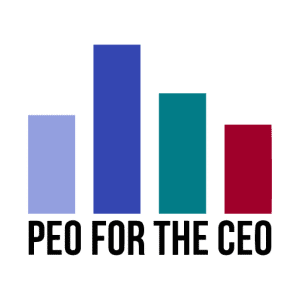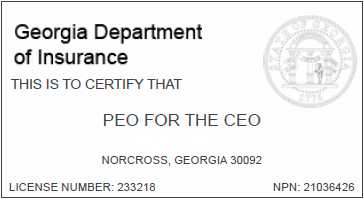Alternative Dispute Resolution (ADR)
Understanding Alternative Dispute Resolution (ADR) for Your Business
Alternative Dispute Resolution (ADR) refers to methods of resolving disputes outside of the traditional courtroom setting. Common ADR methods include mediation, arbitration, and negotiation, offering businesses more cost-effective and efficient ways to address conflicts.

Alternative Dispute Resolution (ADR) offers a streamlined way to resolve workplace disputes, avoiding costly litigation. By leveraging ADR practices, businesses can save time, money, and maintain a positive work environment.
Introduction
Workplace conflicts are inevitable in any business, regardless of size or industry. They can range from minor disagreements between colleagues to complex disputes involving terminations, harassment, or discrimination claims. Traditional litigation, while sometimes necessary, can be extremely time-consuming, expensive, and damaging to morale and company reputation. That’s where Alternative Dispute Resolution (ADR) comes in. ADR offers a range of methods designed to resolve disputes more efficiently, allowing businesses to get back to focusing on growth and productivity. Rather than the drama of the courtroom, ADR provides a smoother, often more private, process for finding solutions.
The Challenges Businesses Face with Workplace Disputes
Handling workplace disputes internally can be a major drain on resources for many businesses. Here are some of the challenges companies face when managing disputes without proper ADR knowledge:
- High Costs of Litigation: Court battles can be incredibly expensive, involving legal fees, court costs, and potentially significant settlements or judgments. Even defending against a frivolous lawsuit can severely impact a small business’s budget. For example, a small startup might find a lawsuit, even one they ultimately win, crippling to their cash flow and ability to invest in other areas.
- Time Consuming Process: Litigation can drag on for months, even years, distracting both management and employees from their core responsibilities. Imagine a busy marketing manager having to attend endless depositions; their focus shifts from campaigns to legal proceedings, directly impacting productivity and revenue.
- Negative Impact on Morale: Workplace disputes, especially when they escalate to lawsuits, can create a toxic environment. Employees may feel anxious, distrustful, and less engaged. This negativity can result in reduced productivity, increased absenteeism, and higher turnover rates. Team cohesion suffers when colleagues are caught in a legal battle.
- Damage to Company Reputation: Public litigation, especially regarding sensitive matters like discrimination or harassment, can severely damage a company’s reputation. This makes it difficult to attract top talent and retain clients, which is why resolving these disputes away from the public eye is always preferable. News of a protracted lawsuit can negatively impact a brand’s image.
- Lack of Expertise: Most businesses, especially small to medium-sized enterprises (SMEs), often lack the internal HR expertise needed to navigate complex legal and conflict resolution issues. Without proper guidance, businesses risk making mistakes that can escalate a dispute and lead to more significant legal problems.
How PEOs Help With ADR
Partnering with a Professional Employer Organization (PEO) can significantly alleviate these challenges. PEOs offer specialized expertise and services that help businesses navigate workplace disputes effectively through ADR. Here’s how:
- Mediation Services: PEOs often have trained mediators who can help facilitate discussions between parties in dispute. Unlike an arbitrator or judge, a mediator does not impose a solution, but instead works with both sides to find common ground and craft an agreement both sides can support. This can be invaluable for resolving conflicts quickly and amicably. For example, imagine a dispute between two team members on a project. A PEO-provided mediator can help them understand each other’s perspectives and find a way to work together more effectively.
- Arbitration Programs: Many PEOs offer arbitration as an alternative to litigation. In arbitration, a neutral third-party arbitrator hears evidence and makes a binding (or non-binding) decision. This process is typically faster, less expensive, and more private than litigation. This service provides a structured and efficient process for resolving more complex disputes, like those involving termination or discrimination claims.
- Expert HR Guidance: PEOs employ HR professionals who are well-versed in labor laws and best practices for conflict resolution. They can advise businesses on how to handle disputes proactively, implement effective policies, and conduct thorough investigations. This proactive approach helps to mitigate the chances of disputes from escalating into lawsuits. A PEO partner can also provide training for managers on handling conflicts.
- Policy Development: PEOs assist in developing comprehensive employee handbooks and workplace policies that include procedures for addressing disputes. By clearly outlining these procedures, businesses can proactively manage conflict and mitigate the risk of misunderstandings and lawsuits. Having clear procedures, ensures consistency and fairness in dispute resolution.
- Cost Savings: By using ADR methods offered through a PEO, businesses can avoid the exorbitant costs associated with litigation. This allows companies to allocate resources to other essential aspects of the business rather than draining funds through long and complicated disputes. Savings from avoiding litigation can be reallocated to growth initiatives and employee development programs.
- Actionable Insight: Even before partnering with a PEO, business owners should review their existing conflict resolution policies. Consider whether those policies offer clear, accessible pathways for employees to voice concerns and find resolutions. Training managers to handle internal disputes effectively can also help reduce the risk of issues escalating.
The “PEO For The CEO” Advantage
“PEO For The CEO” understands that finding the right PEO to suit your business’s needs, especially in areas like ADR, can be overwhelming. We act as your expert guide, connecting you with PEO partners that are the best fit for your specific requirements.
- Save Time and Effort: We do the research and legwork, curating a selection of PEO providers known for their excellent ADR services. Instead of spending countless hours on individual PEO evaluations, we present you with a tailored list of options.
- Access to Multiple PEO Options: We are not tied to any single PEO provider, giving you access to a wider range of choices that perfectly match your needs. This allows you to compare offerings and select the partner that best fits your company culture and strategic goals.
- Expert Guidance: We leverage our deep understanding of the PEO industry to provide you with unbiased advice and recommendations. We are here to help you navigate the complex landscape of HR solutions and find a perfect PEO match.
Conclusion
Alternative Dispute Resolution (ADR) is not just a benefit; it’s a necessity for modern businesses. By partnering with the right PEO through “PEO For The CEO,” you can unlock the expertise and services needed to efficiently manage workplace disputes, avoiding the high costs and headaches of traditional litigation. You’ll gain the peace of mind that comes from knowing that your employees, and your business, are protected by proactive and effective solutions. Don’t let workplace conflict disrupt your business operations.
Contact us today for a free consultation and find the perfect PEO partner to streamline your ADR and HR needs.
About Suzanna Martinez
Suzanna Martinez is the founder of PEO For The CEO, bringing
20+ years of experience working for multiple PEO companies.
She has guided hundreds of businesses in Georgia and Colorado
to streamlined HR operations and significant cost savings.
Suzanna specializes in negotiating large-group health insurance
rates and matching businesses with the right PEO partner.


